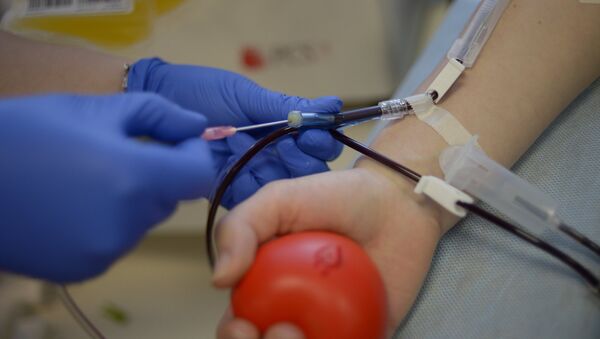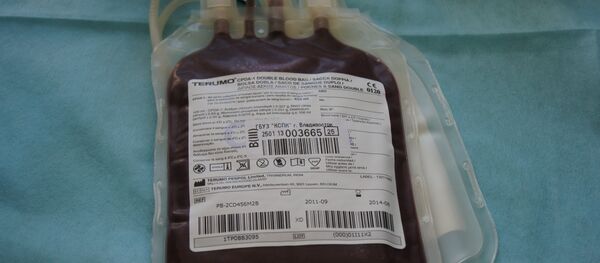"The agency will take the necessary steps to recommend a change to the blood donor deferral period for men who have sex with men from indefinite deferral to one year since the last sexual contact," the statement published on FDA official website read.
According to the statement, the FDA will make the draft wording for the policy change open for public consultation in 2015.
The ban, which the United States put in place in 1983, when the AIDS epidemic was spreading quickly within the gay community, intended to prevent the spread of the virus through blood donations.
Medical experts, as well as gay rights activists, however, consider the restriction outdated.
"This is a step in the right direction, but blood donation policy should be based on current scientific knowledge and experience, not unfounded fears, generalizations and stereotypes," Scott Schoettes, Lambda Legal Senior Attorney and Director of the HIV Project said in statement following the FDA announcement.
Schoettes claimed that "merely changing the parameters of this outdated policy does not alter its underlying discriminatory nature, eliminate its negative and stigmatizing effects, nor transform it into a policy based on current scientific and medical knowledge."
Easing of restrictions for gay blood donors from an indefinite period to one year would bring the United States into line with such countries as Australia, Argentina, Japan and some European countries, including the United Kingdom.
The policy of such EU countries as Germany, France, Austria and Netherlands, among others, is in line with the current US stance, in that they prohibit men who have ever engaged in homosexual sex from donating blood for an indefinite period.
Such countries as Canada and New Zeland allow gay men to become blood donors if they have abstained from homosexual sex for five years.
Some countries that have no ban on blood donations from gay men include Russia, Spain, Poland, Portugal, Italy, Uruguay and South Africa.





